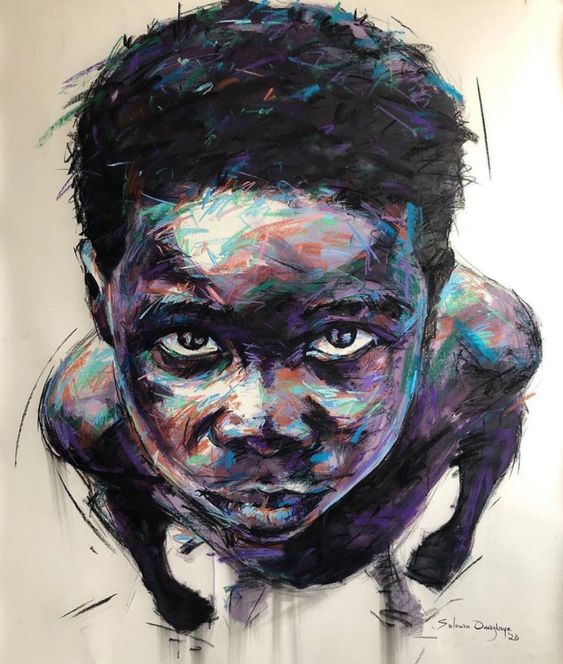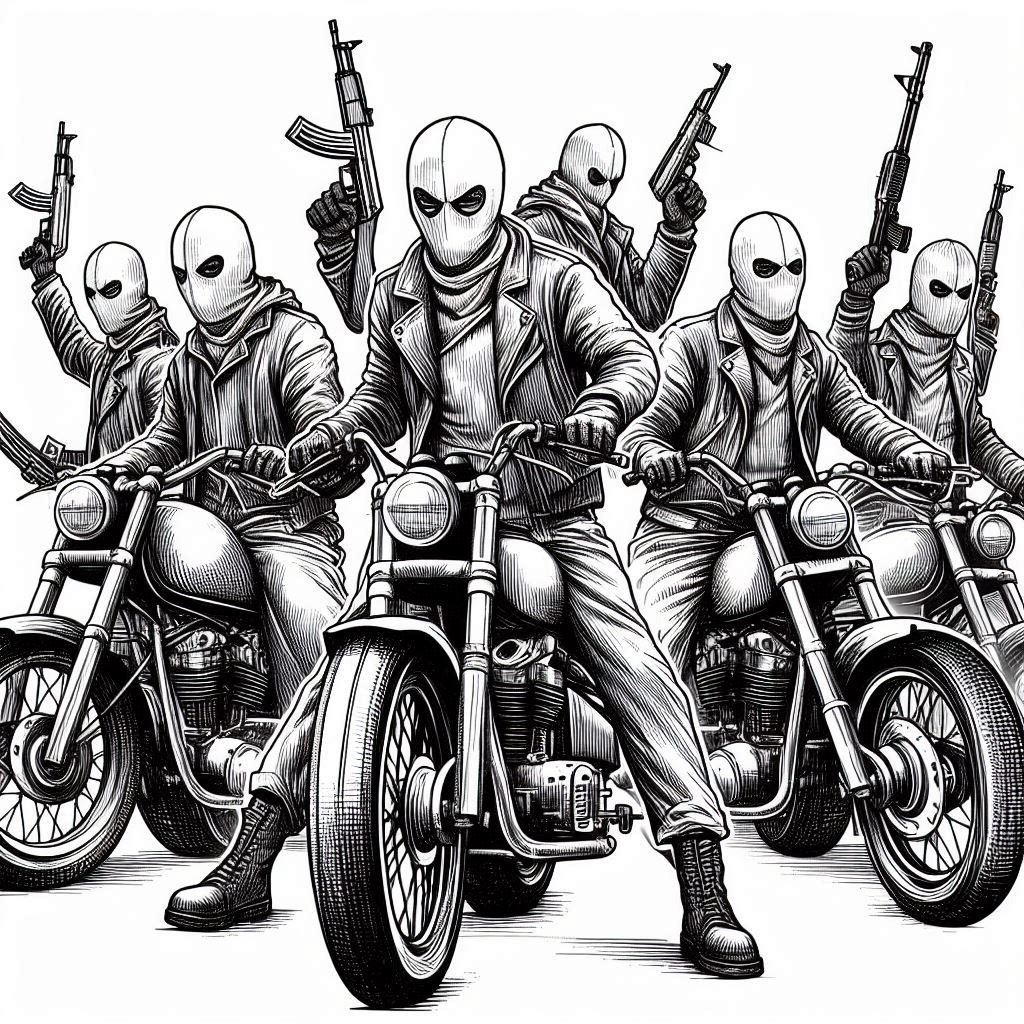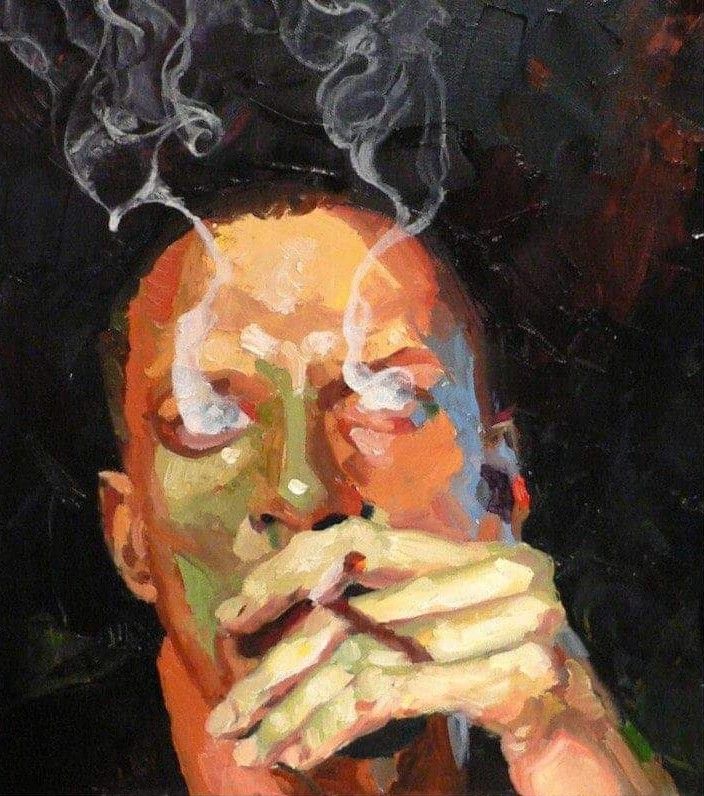Early Days | Olayioye Paul Bamidele

And sometimes, I wished I could undo those tumbling effects on me. But there’s something about early meeting: you either get made or marred
i was timid in my first week at Olabisi Onabanjo University. By timid, I didn’t mean smallish or frail heart, but tongue tied. I hardly speak, not even when the driver provoked me by withholding my change, not even when the class rep, a kind of a guy with a stunt look, his head split into two and a smile that revolves rather than evolves asked me to stand before the class and introduce myself. Truth, I wanted to open my mouth and tell him how much his face giggles me, how much of an introvert I suddenly became, but how could I profess such mockery, in such lockdown situation? Though, my mouth might not be enforcing with laws, but the environment influences this act. I didn’t know why this was so, but some sociological factors that transmogrify one into a psychopath. My culture shock was slowed in healing, so I lived with a tongue tied, lonely character that it evolves into a character.
And sometimes, I wished I could undo those tumbling effects on me. But there’s something about early meeting: you either get made or marred (borrowing Olusegun Obasenjo’s phrase). Unfortunately, I was marred, and somehow in the process, my flow of speech was hitched into a flint, stuttering trolley torso. Such was too sudden, as it really reconfigured my whole biology. My character and speech were cold, I mean, unreceptive to the new world.
Let’s delve a little into my background. I was born and breed up in Plateau, a middle belt or North Central region of Nigeria. The centrifugal culture of this state was evolving from the Hausa culture. We were Hausa sociopath. Their simplicity of language, character, by calling a spade a spade in declaring, the usual silent replies to aggressive behavior were my sensitivity anatomy. So as a result, transversing from North to South West, crisscrossing a set of people, whose speech and character were flouncing quibbles, or to be more vulgar, people whose speech were soiled with agberoism was a sudden transmutation. It got so intimate with their manners that even the part of piety was also affected in a way that, while praising God, they shapeshift with ease. Consider this:
– praise God church.
– <<silence>>
– Oshi shey yin ni? (Is unfortunate rhyming with you?)
I am not here to pass judgment, but at least, to be satirical, because life here is a satire to everyone. Everything was converted into a thing of sad comedy, and the interpretation was just to evoke laughter, or farce. I do fancied those laugh-erupting moments. But the opposition steams from what I couldn’t conform to, I mean, what I couldn’t fit into. Life here was just too brutish that I couldn’t find myself, this dove character, impossible or unable to break a earthworm’s spine, intertwining. It was a DNA that Plateau gave me. But Ogun State was bent on changing that, and I was just a cobweb in its hands. So when it couldn’t twist me, it mocked me. Not as serious as to evoke a suicidal tendencies, but a farce, a thorough satire of my unrenewed character. As they would call it, mallam ni é.
But I must confess something that I was held by a certain fascination. There was a way their sociological entity provoked salivating appetite to learn, to join. But the thing was that, I have been more christened in Hausa culture that to convert to a Yoruba, flouncing proselyte was close to impossibility. Giving up my indented self, the one I was used to, to a sudden transmogrification, I had a lot of lapses in this process. But the truth still remain that I was fascinated by the sophistication of their characters, the dexterity in them. Those things they do and take as nothing couldn’t really go for nothing in our side. Mind you, the Hausa culture I was brought up in was simple in that we don’t categories life as won’t dying for – to the brutal extent of using one for ritual, killing for fame, killing to outrun the other in capitalism race, or even to rape. Life doesn’t worth all these. So in such a scenario, I mean the south west scenario where all these incidents are glorified, the culture shock pushed me out of my total resistance, so I was bruised with a shame: I couldn’t fit into the society and I couldn’t introduce mine to them. Such a pathetic life!
In the meantime, I met other things that made my stay worthwhile, my beginning I meant. A girl, quite brilliant and intellectual, fell in love with me. It was one of my culture shocks. In Plateau, love was earned base on virtue and prowess, which could be intellectual or manly strength. But here I hardly did anything to attract her but she loved me, seamlessly. And I wished I could have done better, by proving her love with intellectual activity. But I couldn’t, at my first time, to achieve this, so I was just a boy lucky in love, or caught like a fly in a spider web, in the wing of love. Love craziness. Friends popped in. Friends with the most crazy, unrelated characters. Genabel for example, who was at arm length from me, was more of a crazy character. He was the man who holds the yam and holds the knife of the class. He determines, and sometimes he’s determined. But the crazy wasn’t just that, rather, it was the impalpable nature of intersecting with north and south character, a dovetailing of cold and hot. I wondered if God hasn’t spit him out. And I’m sure it’s just a thin air that remains between spitting and staying. By this I meant, Genabel was someone that intellectually code switch flouncing quibbles with comical squabbles. He knows how to satire you without revealing the agberoism in him. On my first birthday in the school, he called me ‘the guy with the tiniest voice.’ Somewhat believable and anger provoking, the sentence itself, as you could testify, doesn’t carry either. The sentence in its purest form connotes my feminine physiology. Though I had a feminine voice, however connotatively, the sentence points to my femininity to the Yoruba diction. A Yoruba man needs this masculinity to frighten and threaten, all of which my voice lacks. I remembered Lanre once – or was it EMO, Afeez, or Ola-Breezy, that – said I should take up smoking, to embolden my voice. Genabel’s good with euphemism. Unlike most of my classmates that would be blunt about it, his shape of language was very much savvy in nature. One of my course mate once said to me, straight without hiding, ‘your Yoruba is a pure mess,’ intending that I wasn’t qualify to speak it yet. Another friend was Afeez, a fashionista, whose world was all about funfair, was centered on caliber creating. His language were soft too, in that they aren’t blunt when addressing your mom, rather, they salvage on the intentions without hitting it on its head. There was a day when he was speaking with his friend and his friend said:
– mo ni kin pe mummy e (I said I should call your mummy) – in that vulgar cilantro
– ee? Mummy e nice (eh? Your mummy is nice) – in the coolest manner.
That attitude, that soft response, actually changed the perspectives I had about him, about Yorubaness in him. So by that response, I became attached to him. But Sugbomi, the present sport director, still has a case to answer. I, being the plaintiff. That will depend on the character he later puts on. Also, Nuga, my assistant editor when I was the editor for Art & Culture in our department newspaper, has a case to answer. In the same comical style, Nuga sets himself at mocking at my attempt in pronouncing Yoruba names, misplacing the cadence. Pitch fall and rise according to tonal marks. I wished I could dictate the meaning of those marks on the words, although my grandfather’s night devotion where hymns are chorus every night would have been a messiah, yet my tongue wouldn’t recoil to the pronunciation. As a result, I fluffed. Funny enough, my errors were satired. And though, my duty as a line editor for Art & Culture would have visualized me into the world of Yorubaness, yet my reporters fell short of achieving this glory. Working as the editor was an eyeopener, a light, but like the biblical Apostle Paul, I was blinded. My reporters set themselves on reviewing the festivals and the delicacies inherent in Ijebu culture, such as Agemo, Ojude Oba, Ikokore, Oro, etc. However, none of these served as a trapdoor. Rather, they were deliquesce mirror that further ostracize me. How would I fit in if I carry sticks and troll around Agemo? By eating Ikokore or that cocoyam swallow wrap in leaf, would my voice get deep? Obviously no! I wished they reviewed characters, point to how foreigners could gratify with ease.
But the point was that, I was a fish in a new river, and swimming in it, all requires new tactics. But the force of it was more than tequila. It tortures me that I don’t wish to get intoxicated again, mostly, by this new menace. Maybe I might get to learn it later, not now that I’m writing this personal essay, but maybe later as I continue. For the past one and half year here, I am yet to grapple this rope, in the perfect syntax. My Yorubaness in language and character is still crawling, like a toddler with a shell of still learning. My coursemate, Adeolamoyo, who’s a podcaster, ran a podcast in Yoruba, in which she was fluent in it. And I was reminded of this lack, which after one year, there was nothing to prove. The language was bulimic, eating and purging it. I wished I was perfect like Seyi in my class, I mean the backseat rogue who could unleash Yoruba the way I converse in Hausa. I couldn’t say this to his face, but the truth was, I envied him so much, his simplicity at unleashing, though his euphemism were of luck unlike Genabel, but not too bad to vibe with. So I got more entangled with his bashing on WhatsApp group chats and visual chatting. But I still stick to my philosophy. In as much I love the new society I found myself, my inability to fix in made me dislike it and stick to my Hausaness.







